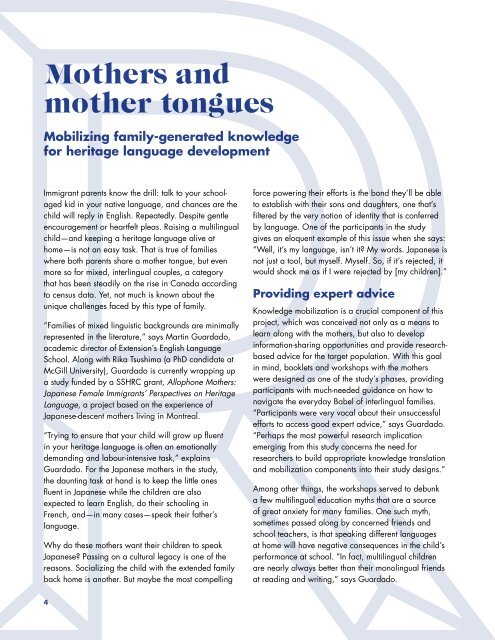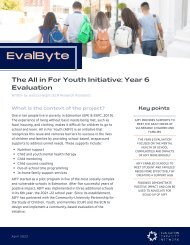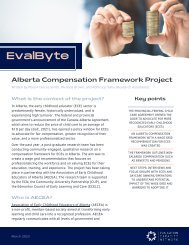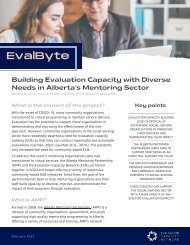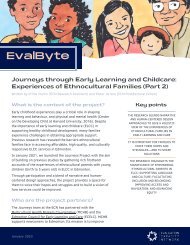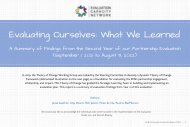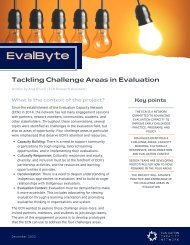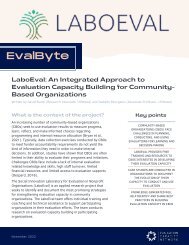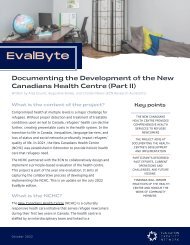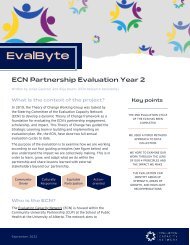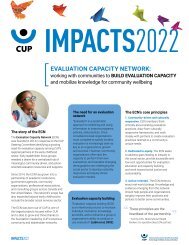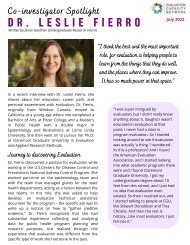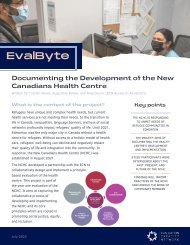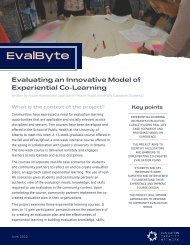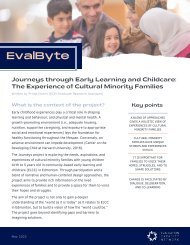Research Report
You also want an ePaper? Increase the reach of your titles
YUMPU automatically turns print PDFs into web optimized ePapers that Google loves.
Mothers and<br />
mother tongues<br />
Mobilizing family-generated knowledge<br />
for heritage language development<br />
Immigrant parents know the drill: talk to your schoolaged<br />
kid in your native language, and chances are the<br />
child will reply in English. Repeatedly. Despite gentle<br />
encouragement or heartfelt pleas. Raising a multilingual<br />
child—and keeping a heritage language alive at<br />
home—is not an easy task. That is true of families<br />
where both parents share a mother tongue, but even<br />
more so for mixed, interlingual couples, a category<br />
that has been steadily on the rise in Canada according<br />
to census data. Yet, not much is known about the<br />
unique challenges faced by this type of family.<br />
“Families of mixed linguistic backgrounds are minimally<br />
represented in the literature,” says Martin Guardado,<br />
academic director of Extension’s English Language<br />
School. Along with Rika Tsushima (a PhD candidate at<br />
McGill University), Guardado is currently wrapping up<br />
a study funded by a SSHRC grant, Allophone Mothers:<br />
Japanese Female Immigrants’ Perspectives on Heritage<br />
Language, a project based on the experience of<br />
Japanese-descent mothers living in Montreal.<br />
“Trying to ensure that your child will grow up fluent<br />
in your heritage language is often an emotionally<br />
demanding and labour-intensive task,” explains<br />
Guardado. For the Japanese mothers in the study,<br />
the daunting task at hand is to keep the little ones<br />
fluent in Japanese while the children are also<br />
expected to learn English, do their schooling in<br />
French, and—in many cases—speak their father’s<br />
language.<br />
Why do these mothers want their children to speak<br />
Japanese? Passing on a cultural legacy is one of the<br />
reasons. Socializing the child with the extended family<br />
back home is another. But maybe the most compelling<br />
force powering their efforts is the bond they’ll be able<br />
to establish with their sons and daughters, one that’s<br />
filtered by the very notion of identity that is conferred<br />
by language. One of the participants in the study<br />
gives an eloquent example of this issue when she says:<br />
“Well, it’s my language, isn’t it? My words. Japanese is<br />
not just a tool, but myself. Myself. So, if it’s rejected, it<br />
would shock me as if I were rejected by [my children].”<br />
Providing expert advice<br />
Knowledge mobilization is a crucial component of this<br />
project, which was conceived not only as a means to<br />
learn along with the mothers, but also to develop<br />
information-sharing opportunities and provide researchbased<br />
advice for the target population. With this goal<br />
in mind, booklets and workshops with the mothers<br />
were designed as one of the study’s phases, providing<br />
participants with much-needed guidance on how to<br />
navigate the everyday Babel of interlingual families.<br />
“Participants were very vocal about their unsuccessful<br />
efforts to access good expert advice,” says Guardado.<br />
“Perhaps the most powerful research implication<br />
emerging from this study concerns the need for<br />
researchers to build appropriate knowledge translation<br />
and mobilization components into their study designs.”<br />
Among other things, the workshops served to debunk<br />
a few multilingual education myths that are a source<br />
of great anxiety for many families. One such myth,<br />
sometimes passed along by concerned friends and<br />
school teachers, is that speaking different languages<br />
at home will have negative consequences in the child’s<br />
performance at school. “In fact, multilingual children<br />
are nearly always better than their monolingual friends<br />
at reading and writing,” says Guardado.<br />
4


